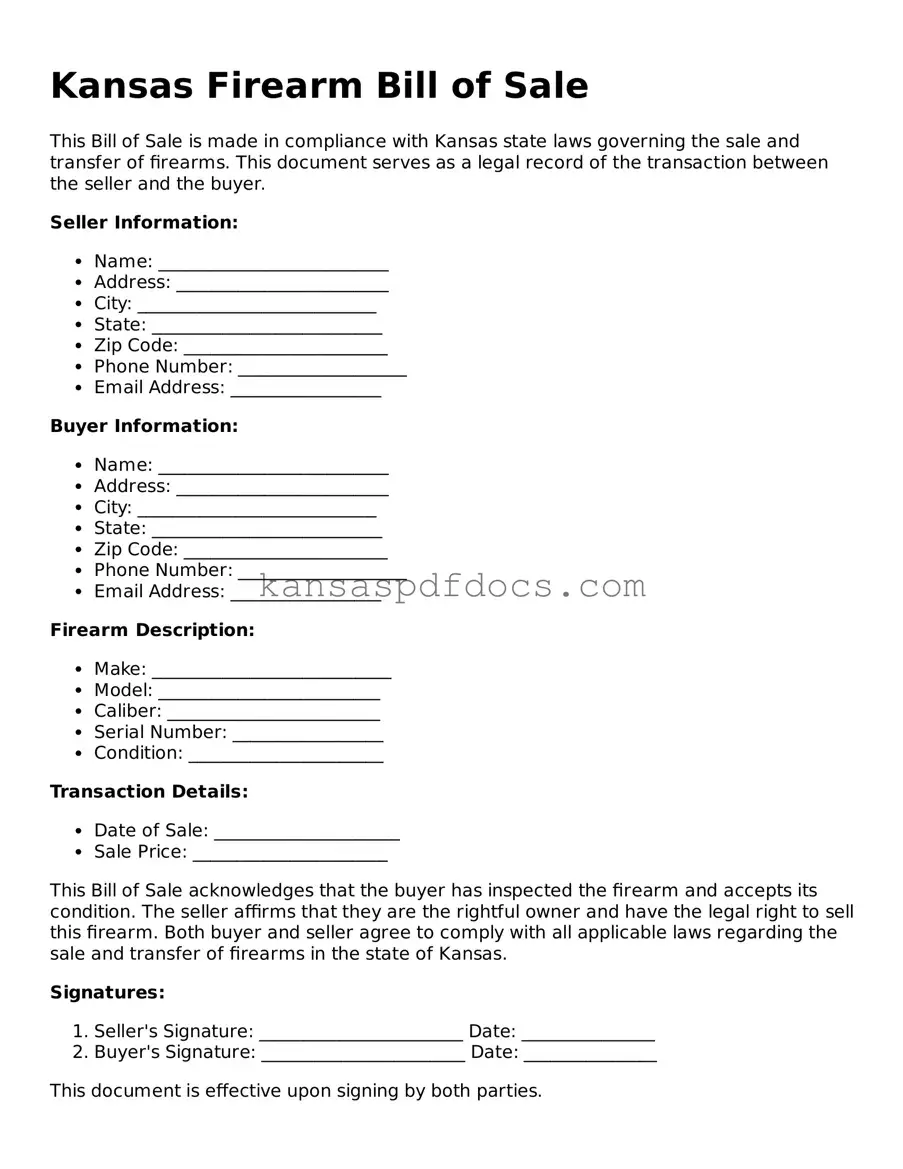Valid Firearm Bill of Sale Template for Kansas State
A Kansas Firearm Bill of Sale is a legal document used to record the sale or transfer of a firearm between individuals. This form ensures that both the buyer and seller have a clear understanding of the transaction, providing essential details such as the firearm's description and the parties involved. Utilizing this form helps protect both parties and complies with state regulations.
Access This Form Now

Valid Firearm Bill of Sale Template for Kansas State
Access This Form Now
Your form isn’t ready yet
Edit and finalize Firearm Bill of Sale online without printing.
Access This Form Now
or
Get PDF Form
